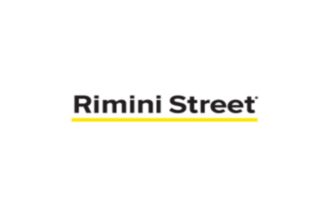Author, Gopi Ganesalingam
Uber has done it again! Only this time, they did the impossible; they exited the region, went AWOL and selling out to their very competitor Grab. Now the question is, why it happened? Was it a lack of appetite, being late to the game, or simply not understanding how to negotiate outside their home market in the US?
Before I come to that, let me share some fascinating stories that came to my mind when thinking about the intricacies of the local business landscape. First, we have the Malaysian used-car platform company, Carsome, which raised US$19 million in March 2018. The funding was led by Burda Principal Investments, through their Singapore office. Then, we have StoreHub, our very own Malaysian company that built a Cloud-based Point of Sale (POS) application that is used by 3,000 retail stores across 15 countries, raised US$5.1 million from Vertex Ventures. And get this – Vertex is an investor in Grab, owned by Singapore’s Temasek Capital.
Then, of course, you may remember that a couple of years back, Soft Space, the Malaysian FinTech company raised US$5 million from Japan’s Transcosmos but that isn’t the best part. Did you know that Carson, StoreHub and Soft Space, joined almost 3,000 other companies that have been accorded MSC (Multimedia Super Corridor) status by Malaysia Digital Economy Corporation (MDEC)?
Since its inception in 1996, we MDEC have been actively pursuing Malaysia’s digital agenda; it was done with several things in mind – to encourage technology companies to set up in Cyberjaya, bringing in shared services companies, and by working to build globally competitive Malaysian headquarters companies.
Let’s take some examples of the first generation of Malaysian companies, many of whom achieved billion-Ringgit valuations with very little capital and yes, you read them right. Starting with founder’s money, these companies at best raised two to three million US dollars, which had to take them straight to an IPO. With few exceptions, except Grab and iFlix, which raised US$45 million while Shopee raised US$170 million, so why Malaysian companies have not appeared on the radar of major VC firms?
Money chasing Malaysian deals
As they say, times have changed and money is now chasing local deals because of the ability of Malaysian companies to navigate the fragmented and tightly regulated markets of Southeast Asia especially when it is changing the landscape in Malaysia.
N2N Connect, a company that provides securities trading platforms used its Malaysia-base to grow into the region. Honestly, we are fortunate to have a forward-thinking central bank – in addition to allowing for crowdfunding platforms, and a sandbox for testing of new products, our very own Bank Negara Malaysia (BNM) has finalised electronic Know-Your-Customer (e-KYC) guidelines. This is a huge step, allowing for much faster and more seamless customer acquisition. Ultimately, these guidelines made it possible for Internet payment provider iPay88 to launch a virtual account for the “unbanked” market.
I am pleased that MDEC has continued to play an active role in building the ecosystem that has allowed these companies to flourish as we maintain a constant and consistent dialogue with several stakeholders, including BNM and the Ministry of Higher Education – where we led the push to introduce coding classes in schools. While we continue to work on the digitisation agenda, we recognise an urgent need to bring larger VCs into Malaysia.
Companies like Carsome, StoreHub and Soft Space are building businesses and they are like utilities though if one was to compare them with Tenaga or Celcom, Maxis and Digi they do have their differences. Utility businesses have large CAPEX needs and their business is protected by licenses – they didn’t start off with a small bunch of customers and build the infrastructure from customer revenues; no, that business model just doesn’t work that way. Simply put, they build a small power plant, supply a few hundred customers and from the revenue build a megawatt plant – big money is raised up front.
Scale up at speed.
Well, the startup guys are a different story – they don’t have the protection of a license, so they start with a small bunch of customers, typically called a “Minimum Viable Product.” From there, they then get feedback, gain traction and often go through a few product iterations. Once that has been achieved, they need the money and by money means lots of it – to build the infrastructure, delivery capability and capture market opportunity ahead of potential competition and we have a saying in MDEC, it’s a matter of “Grow Fast and Go Global.”
Some time ago, Zilingo, a Singapore based startup raised US$54 million for an expansion into the region from their base in Bengaluru, capital of the Indian state of Karnataka – now, that’s big money! The company provides a platform for customers to browse and buy fashion products from retailers in Southeast Asia and since its inception in October 2015, Zilingo has raised US$82 million, to launch in Thailand and expand into Malaysia, Indonesia, the Philippines and Vietnam. Like other platforms, the technology relies on artificial intelligence to learn buyer behaviour and then of course to propose the “right” product.
The need to achieve scale and leverage on engineering capability probably led companies like GHL Systems Berhad to acquire its rival Paysys (M) Sdn Bhd for RM80 million, with half paid in cash and the balance in shares. Don’t be surprised – GHL is no stranger to corporate exercises; in 2013, GHL acquired e-Pay Asia Limited, a company founded by Simon Loh, now vice-Chairman of GHL. Local PE firm, Creador, sold its stake to Actis in 2017, and they are now are pushing for growth in the payments, or FinTech space, which is seeing a lot of new entrants. That is something, isn’t it?
Malaysia on the VC Map
Today, digitisation coupled with the porosity of borders has meant that competition lands at your doorstep almost from the word go! Scale and speed of growth are important; the fuel? Cash and plenty of it! This is one of the reasons why MDEC is pleased to have attracted Vickers Venture Partners to open its Kuala Lumpur office.
The presence of Vickers on our shores is another indication of investor interest in Malaysian-originated deals. Yet, the question still remains – have we done enough to put Malaysia on the map? Only time will tell, but the good news is that investors are now getting off the plane at KLIA and rest assured, we at MDEC, are busy making sure they continue to keep Malaysia firmly on their radar.
One example of the major initiative that we were involved in was the “Sea Dragon Venture Platform” in which SEAD targeted companies that have the potential to lead players in the Asian and North Asian markets that were looking for growth capital of US$5-25 million; this too, was an opportunity to showcase to the region why having a start-up to scale is best done from Malaysia.
So, let’s gear up and prove to others why it is time to “Grow Fast and Go Global,” in line with MDEC globalization strategy; “Building Local Tech Champions!”
Gopi Ganesalingam is the Vice President of Enterprise Development at Malaysia Digital Economy Corporation (MDEC). Follow him on LinkedIn.











